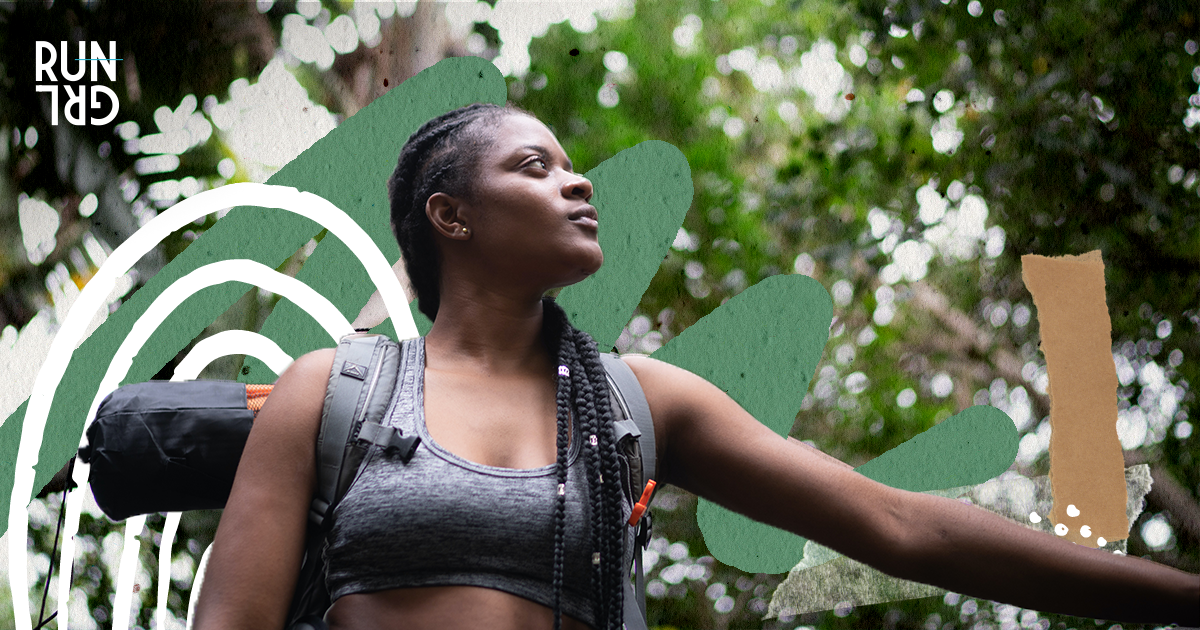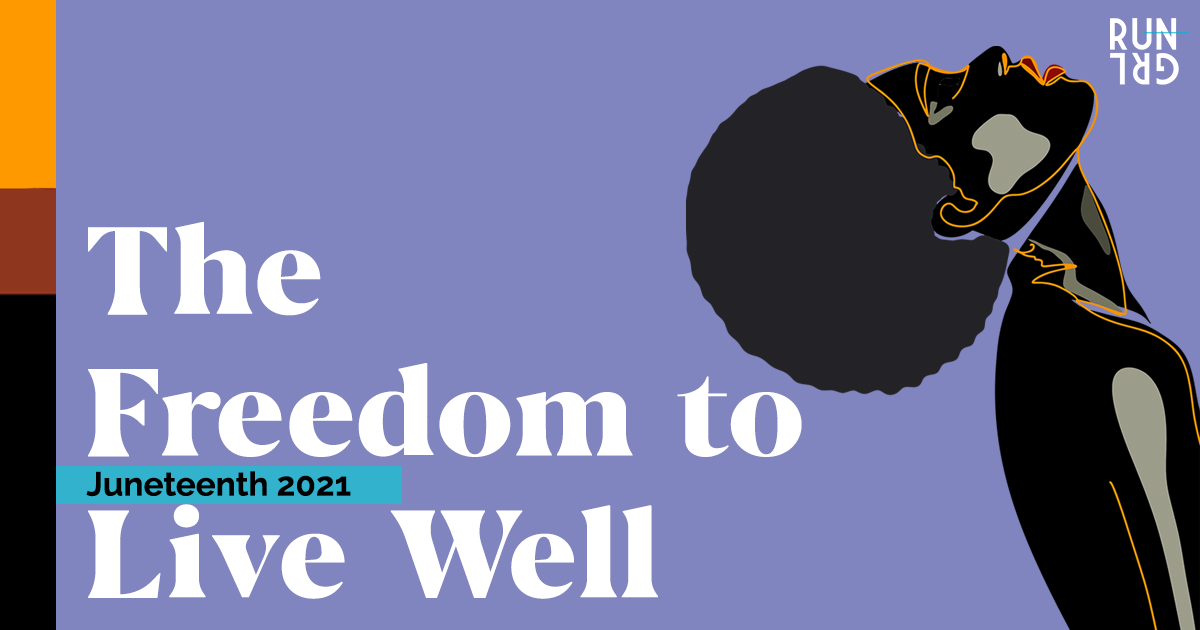All Runners Should Be Environmentalists
Photo: RF._.Studio/RUNGRL Design
by Peyton Thomas, Contributor
Think about the source of every material item you have. Most everything is either a direct product or by-product of Earth’s natural resources. Because of this, anyone who ventures outside, breathes air and drinks water should be an environmental advocate. Spoiler alert: that’s all of us.
To a certain extent, the Earth is regenerative. However, just as after a hard run or workout your body needs time to recover and replenish nutrients, the Earth needs recovery from extractive processes. Our bodies perform best when we aren’t impaired by toxins and unhealthy habits. Likewise, the Earth functions best when not impaired by pollution of the air, water and land we see every day.
It’s not a coincidence that our planet’s needs mirror our own, but just how important is it that we address these issues of climate change?
Why Runners Should Care About the Environment
Environmentalism: A diverse philosophical, social and political movement for addressing environmental issues. Photo: RUNGRL Design
If you ask most runners what their ideal running space is, they’re likely to say outdoors. Running is a fundamental form of connection to the natural world as people. Some scientists--including Daniel Lieberman, chair of Harvard’s Department of Human Evolutionary Biology and nine-time Boston Marathoner--have even theorized that running was a human evolutionary adaptation to allow us to hunt prey persistently.
Humans’ innate connection to nature through cultural practices and running goes back centuries. Historically, many cultures have understood and embraced this. Particularly, the tradition of conservation by Indigenous people has always emphasized the vital importance of caring for the planet, which makes it all the more distressing that ongoing calls for preservation seem to fall on deaf ears.
Increasing threats of climate change and environmental pollution mean that everyone, especially runners, needs to stand up for the planet and our rights as humans. Optimal running and racing temperatures may not be realistic for many more years under warming temperatures. The increased prevalence of storms and rising sea levels are affecting races along coastlines while decreased environmental protections allow the production of more noxious gases. One need only look to the wildfires currently ravaging the West Coast to see the major air quality issues posing threats to simply being outdoors.
Your Running Climate
We can’t consider our own wellness without taking into account the health of our environment. Exposure to air and water pollution can be hard to avoid even if we are privileged to run in the most pristine areas. If airborne particulate matter (a type of air pollutant) made from waste burning in industrialized countries can make it all the way to the Antarctic, it can easily make it to your local running route.
Environmental preservation is also a part of the ongoing discussion on justice and equity for all people. Environmental injustices affect everyone, but disproportionately affect people of color. A 2016 study in Environment International found that long-term exposure to the particulate matter is associated with racial segregation and that more highly segregated areas suffer higher levels of exposure.
Environmental Justice: A movement to abolish environmental harms to all people, regardless of race, gender, sexuality, religion, economic, or political status. Photo: RUNGRL Design
Greenaction.org explains, “Environmental racism refers to the institutional rules, regulations, policies or government and/or corporate decisions that deliberately target certain communities for locally undesirable land uses and lax enforcement of zoning and environmental laws, resulting in communities being disproportionately exposed to toxic and hazardous waste based upon race.”
Access to clean outdoor spaces such as mountains, forests, beaches and even local parks, is not available to many lower-income residents, ethnic minority communities or Indigenous groups. Many formerly protected spaces remain in jeopardy, as news of pipelines going through sacred lands and the historical disregard for the lives and cultures of Native Americans continues without letup.
What You Can Do About the Climate Crisis Now
Everyone has the opportunity to be an environmental advocate and to take collective action. It starts with assessing your daily practices and understanding where each of us can be more conscious of how our lifestyles affect others. Ask yourself, ‘What am I endorsing and investing in with my lifestyle?’ or ‘What sort of buying habits, waste habits and conservation habits are part of my everyday life?’ Your actions can have immediate impact on not only yourself, but your community.
Related Stories
Next, pay attention to what the government, industries, companies, businesses and local communities are doing to protect people and the environment from harm and don’t be afraid to ask questions and hold these entities accountable.
Educate yourself and those around you about upcoming federal and state environmental legislation and raise your voice just as loudly against harmful proposals as you do in support of environmental protections. Many existing environmental protections have already been hindered or dismantled by the current administration. Get to know more about the issues and what these laws mean and take action to vote for candidates that will oppose harmful legislation.
Additionally, you’ll want to get to know the brands and organizations that are doing the important work to advocate for environmental protection and climate justice. Follow and support those who are working to build and grow inclusive outdoor experiences for all. Here are just a few:
Environmental Racism: Included in the conversation of environmental justice, disproportionate harm to the health and safety of communities of color. Photo: RUGNRL Design
Runners for Public Lands wants to turn every runner globally into a better steward of the environment.
Protect Our Winters helps passionate outdoor people protect the places and lifestyles they love from climate change.
She Colors Nature Activist and filmmaker Chelsea Murphy has created a platform for underrepresented women to tell their stories and have conversations about race, inclusion in the outdoors and their connection to both nature and their communities.
Outdoor Afro celebrates and inspires Black connections and leadership in nature.
The Solutions Project funds frontline leaders of color and provides media support for diverse leaders who empower communities to build solutions to the climate crisis from the ground up.
Soul Track Outdoors facilitates community, recreation, service and leadership for POC in nature.
You don’t have to be a literal ‘tree hugger’ to recognize the benefit of the air that trees provide and the many other wonders of the environment we call home. If we truly love running, we need to protect our running spaces. It will take collective effort to create, restore and maintain beautiful running spaces for everyone. Recognize the power of your voice (and your feet) to push for change that benefits everyone.
Peyton enjoys running as a way to connect with nature and hopes to inspire others to do the same. She began running in high school, competed collegiately for Baylor University, and currently runs for Without Limits in Wilmington. Her marathon best is 2:42:57 and she competed in the 2020 U.S. Olympic Marathon Trials.
She is also a biology and marine biology graduate student at the University of North Carolina-Wilmington, where she studies the effects of environmental stressors on muscle physiology and development in several fish species. She is interested in environmental and social justice advocacy and wants to promote daily lifestyle practices that enhance the quality of the environment and expand ways for people to become more connected to it.
Peyton is a member of The RELAY Squad. Learn more about The RELAY.







